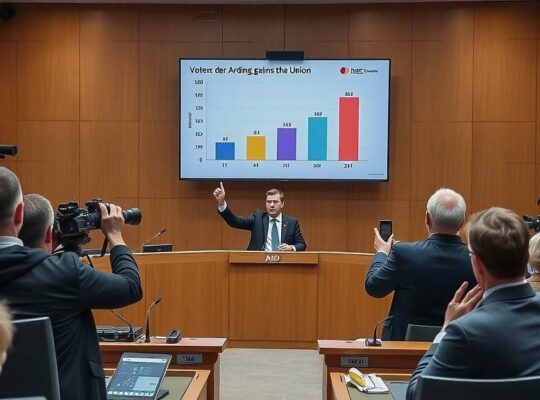The German Left party is calling for a fundamental overhaul of occupational pension schemes, known as “Versorgungswerke” catering to self-employed professionals like doctors, lawyers and architects, following revelations of significant financial missteps within several of these institutions. Sarah Vollath, the Left party’s spokesperson for pensions and retirement security, argues that the current system, operating as a privileged component of Germany’s first pillar of retirement security, requires urgent reassessment.
For years, these Versorgungswerke have offered a route for professionals to opt out of the statutory pension system, bypassing the contributions and protections afforded by the state-run scheme, in exchange for a purportedly enhanced retirement provision managed by the respective professional chamber. The aggregate assets under management for these Versorgungswerke currently amount to roughly €300 billion.
The call for reform is fueled by growing concerns over governance and risk management. The Versorgungswerk der Zahnärztekammer Berlin (VZB), serving over 10,000 dentists across the capital, Brandenburg and Bremen, has reportedly suffered losses well into the “high three-digit millions” due to investment strategies involving market speculation. The VZB’s invested assets were valued at €2.2 billion at the end of 2023, a figure significantly diminished by recent performance.
Vollath critiques a system where individuals can prioritize speculative investments to bolster their pensions while simultaneously relinquishing their entitlement to statutory pension security. She proposes a universal occupational insurance scheme mandating contributions from all workers, ensuring basic retirement protection for everyone regardless of profession.
The Left party’s demands extend beyond a system-wide insurance reform. They are sharply critical of the current self-governance model of the Versorgungswerke. Vollath advocates for stringent national minimum standards, genuine regulatory oversight by state bodies instead of relying on chamber-led self-management, strict limits on investments in illiquid and high-risk assets, mandatory stress tests and full portfolio transparency. Furthermore, she insists on personal liability for board members, clawbacks of bonuses in cases of losses, protections for whistleblowers and strengthened member rights. Critics within and outside the Left party contend that the current framework lacks accountability, leaving members vulnerable to the failures of unchecked investment strategies and opaque governance. The proposed reforms aim to address these vulnerabilities and ensure a more secure and equitable future for all German professionals.












